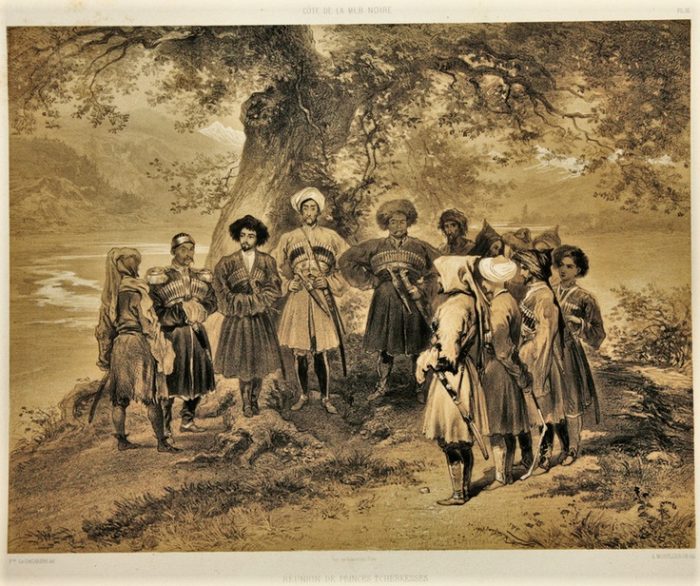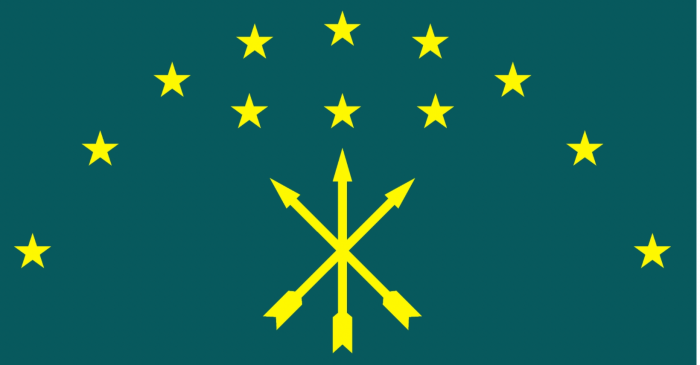Challenging Negligence: The Victims’ Perspective on Russian Occupation
Adel Bashqawi
September 28, 2024

It is neither acceptable nor reasonable to underestimate or assume the ignorance of others to avoid fulfilling the utmost duty of adhering to international laws and norms—let alone respecting religious and human values. Responsibility is a collective obligation that should not be limited to one particular party. It is essential to achieve a post-colonial status that restores usurped historical properties and legitimate rights.
Appropriate measures must be taken to dismantle colonial legacies and secure freedom, allowing people to choose their own path. This path should ultimately lead to realizing cultural, social, national, and economic aspirations, culminating in full independence. Without hesitation, the goal must be to restore all legitimate rights related to the Circassian homeland and preserve the national identity, with all that entails in terms of ethnic origin and the recognition of its indigenous people. This also includes honoring commitments to restore legitimate rights, reclaim freedom, and recognize the right of return and self-determination.
However, in light of the stubborn refusal to acknowledge the atrocities committed by the Russian Empire and successive regimes, Russia finds itself caught in a highly intense vortex of its own making, demonstrating reluctance to take wise actions to resolve these deep-rooted problems.
Circassia: A Priority and Focus
Addressing the primary issues of the Circassian Question must take precedence over any other concerns. It should be prioritized over temporary projects or misguided decisions that risk undermining the cause. This is not merely a case of negligence but a misplaced focus on personal or less critical matters, which ultimately “neither nourishes nor avails against hunger.”
Analyzing the situation reveals that some individuals attempt to elevate their status at the expense of their peers, ignoring or deliberately sabotaging the collective interests. The Circassians, who endured a defensive war for 101 years, demonstrated legendary resilience through a unique model of collective leadership represented by their main tribal leaders. Such a model must be revised to eliminate the damaging trend of a “one-man show” approach and the unhealthy obsession with narcissism.
This highlights the need to avoid personalization and personality worship. Instead, people should work within an organized, institutional framework, fostering constructive dialogue that serves everyone and advances common goals. The current negative practices are not reflective of traditional Circassian behavior. Those who choose this dark path will ultimately harm not only themselves but also the institutions and groups they are associated with.
There is an urgent need to establish groups, committees, and alliances that ensure cohesion, cooperation, and coordination based on the following principles:
- Teamwork that avoids isolation and individualism.
- Adherence to basic standards and principles.
- A focus on common interests.
National Harmony
In this context, the critical issues of the Circassian Question must be addressed, rather than creating divisions through malicious rumors or internal conflicts. We must honor all the courageous Circassians, both in their homeland in the North Caucasus and in the diaspora, who are using all possible means to raise awareness of the Circassian cause.
The brave Circassians have consistently launched initiatives to assist the beleaguered nation. Special recognition is due to those who continue to inform others about the nation’s struggles, as Circassians defended their homeland and people for 101 years.
What is the purpose of undermining Circassians who enjoy sufficient freedom of movement and action? The tireless efforts made by Circassian patriots to establish the International Circassian Association (ICA)—before it was hijacked by adversaries—have unfortunately been in vain, leaving many disillusioned.
This organizational flaw paved the way for the emergence of institutions and organizations with conflicting goals, leading to the infiltration of ideas alien to the Circassian nation. As a result, the direction and efforts of both the homeland and diaspora communities have become fragmented. True Circassians are the descendants of the brave ancestors who voluntarily gave their lives for the freedom and honor of the Circassian nation and homeland.
Any deviation from national harmony is a grave mistake. There is no justification for the childish behavior of those who aim to harm sincere Circassians who work tirelessly and choose their objectives based on the nation’s best interests. The door remains open for any Circassian willing to contribute to addressing the Circassian people’s seized rights instead of spreading rumors.
Many have sufficient freedom to operate in the various countries where they reside. They have the opportunity to coordinate with their supporters, associates, and friends worldwide, using this freedom to advocate for their cause and confront the obstacles imposed by representatives and agents of ideological subversion.
Conclusion
Circassians should express gratitude to those who are willing to recognize the Circassian Genocide and its repercussions—traumas that still resonate more than 160 years after the end of the Russian-Circassian War.
As Naguib Mahfouz once said, “Leave the bitterness of their actions to time, for every cupbearer will be watered according to what he watered.”

